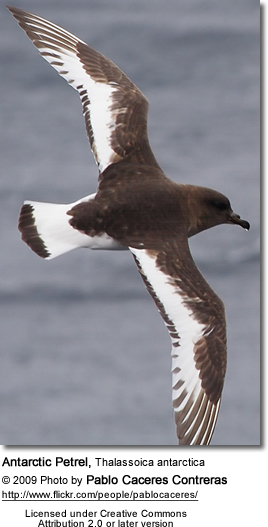Thoughts
 A hundred years ago today, a sure sign of spring arrived at Framheim on the Antarctic continent, the antarctic petrel, who came in great flocks, circling curiously around the house and teasing the dogs, who chased them eagerly and noisily and resultlessly. Tired of chasing the evasive birds they eventually settled for fighting amongst themselves instead.
A hundred years ago today, a sure sign of spring arrived at Framheim on the Antarctic continent, the antarctic petrel, who came in great flocks, circling curiously around the house and teasing the dogs, who chased them eagerly and noisily and resultlessly. Tired of chasing the evasive birds they eventually settled for fighting amongst themselves instead.
Meanwhile, the Mexicans prepared for their presidential election, which was due a 100 years ago tomorrow. Madero, the popular revolutionary commander, was expected to win by a landslide, easily throwing out the interim president de la Barra, appointed by the dictator Diaz after his defeat in the revolutionary wars. But it looked too easy. Had Madero been negotiating with the conservatives, and is this why they didn’t oppose him more effectively?
At the same time, the Italians and the Turks prepared for their war, declared a 100 years ago yesterday. It was destined to be a spectacular war, a modern war, fought on land, at sea, as well as in the air! But as yet not much was going on. The Italian navy had shown up outside Tripoli, but wasn’t ready for war just yet.
A 100 years ago today, many leaves had fallen in Kristiania, and a powerfully built man sporting a fine mustache paced thoughtfully along the slippery sidewalks on his way home from his new job at Hans Erichsen’s bicycle shop. Soon it would be winter, and it seemed more and more definite that he was going to be allowed to skate as an amateur again. He thought of the small minds who had blocked his path for the last season and staged various scenes for his inner eye where he swept them out of his way; time would show what would come of that. He thought of Magnus Johansen, who had been blamed for his loss of the World Championship 1910 despite having winning chances of his own to care for, and who had therefore left the club to join Kristiania Idrætsforening, appearing now as this club’s foremost spokesperson in the struggle against the federation laws forbidding multiple clubs from the same town. Could it possibly be him who had tipped them off about those pawned medals? He thought about his club rival Henning Olsen, the “job first” man, great advocate of the amateur ideal, now possessing the national records in the shorter distances, as well as a conspicuous habit of loudly proclaiming Burnov as the all-time greatest skater. Could it be him? He considered the NSF presidential change. Gresvig always had backed him fully. Thue had campaigned strongly for amateurism. When the news of the pawned medals was put to him, he must have felt compelled to act, apparently, in order to avoid looking too much like a hypocrite.
Thus Oscar’s mind was occupied. But then he reassured himself that of any wisdom he might have gained from what he had seen and done these last few years, the thing that would be most gainful in the long run was be to rise above all these small minds and their quarrelling and squibbling and let his legs and skates speak for him. Many commentators thought that Strunnikov now had set a new standard for speedskating. But this was in his absence, and Oscar suspected that with the opportunities he now had to get leave from his job in order to train and compete, chances were that he could show them a different perspective.